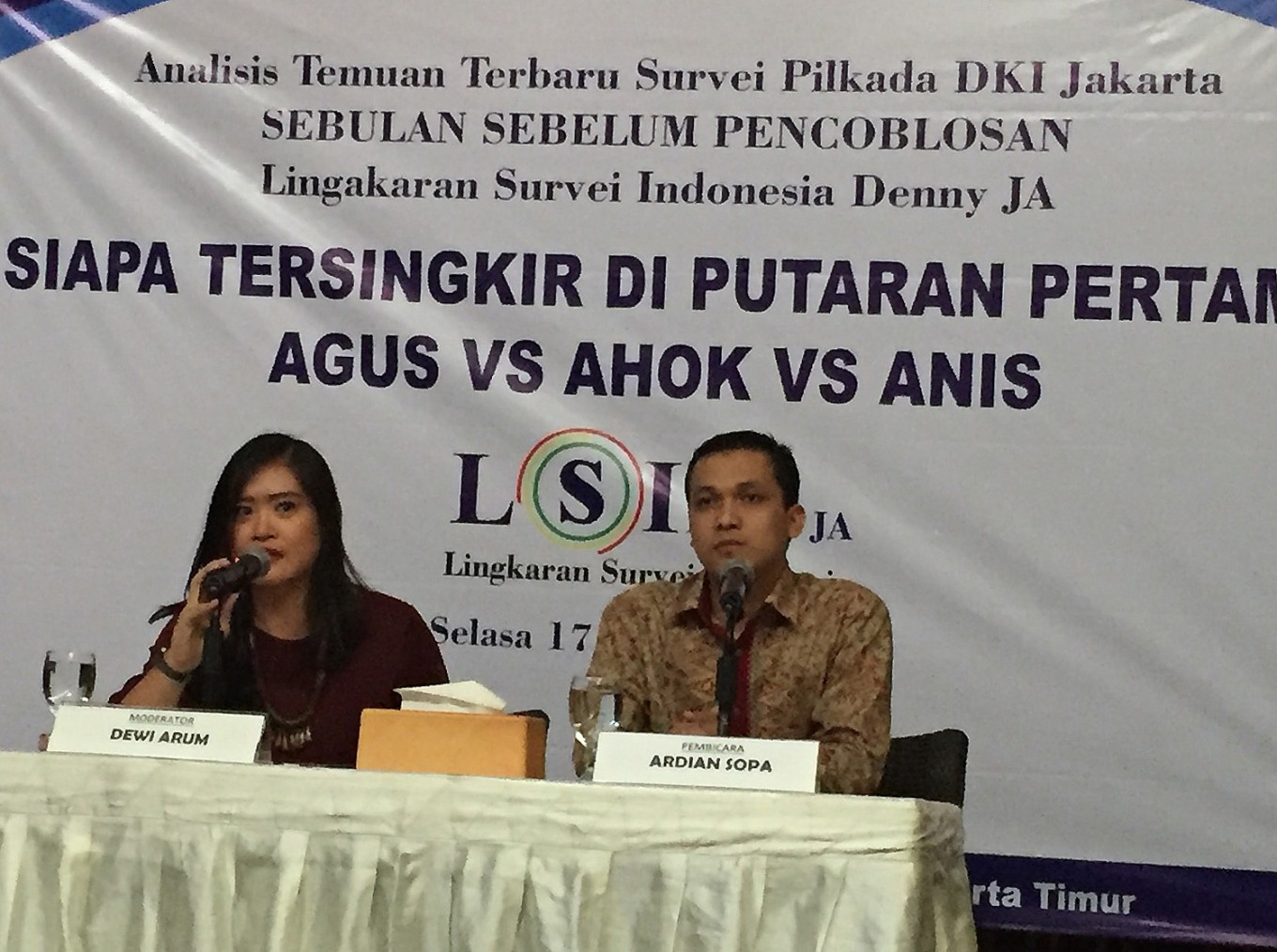Popular Reads
Top Results
Can't find what you're looking for?
View all search resultsPopular Reads
Top Results
Can't find what you're looking for?
View all search resultsPollsters told to maintain integrity in Jakarta election
Change text size
Gift Premium Articles
to Anyone
I
n this political campaign season, election polls have mushroomed in the capital, announcing mixed results that are causing confusion among voters before they cast their ballots on Feb. 15.
The Indonesian Survey Institute (LSI), for instance, reported that incumbent Jakarta gubernatorial candidate Basuki “Ahok” Tjahaja Purnama and his running mate Djarot Saiful Hidayat led the poll in its latest survey released recently. Another Jakarta-based pollster, Poltracking Indonesia, found that Agus Harimurti Yudhoyono and Sylviana Murni led with a slight margin, while PolMark Indonesia put Anies Baswedan and Sandiaga Uno at the top of the electability rating.
Jakarta resident Nova Dulla said that the survey results released by various pollsters were causing more confusion instead of helping her make a decision, since all of polling results were equally unconvincing. “We don’t even know if the result was fair and free from candidates’ intervention,” Nova told The Jakarta Post.
Separately, a member of Anies’ campaign team, Ferry Juliantono, said that while many pollsters were reliable and could be used as a “handbook” for candidates to know more about their voters, some pollsters showed dubious results and refused to explain their methodology to the public.
Some pollsters, he added, might be hired by certain candidates. Therefore, the methodology of the survey should also be attached to the results.
“From the methodology or other technical aspects, we could find out if the survey is reliable or not,” Ferry said.
Pollsters were quick to defend their survey results by saying that many variables, such as the timing of interview sessions, methodology and sampling error percentages, can determine a survey result.
“The diversity in methodology has contributed to the inconsistency of polling results among the pollsters,” Satrio Wiseno, president director of PT Group Riset Potensial (GRP), told a discussion on Thursday.
Eep Saefully, founder of PolMark Indonesia and the Anies camp’s political consultant, said that even if a candidate funded a survey, that did not mean that he or she could interfere in the results. “Even if I am hired as a political consultant by one candidate, I still did my survey independently without any intervention. It is important for us to maintain public trust,” Eep told the Post.
Meanwhile, Hanta Yuda of Poltracking Indonesia said that many surveys were now used to support the political interests of the candidates in the hope that the public would be influenced by a “bandwagon effect” so they would support any candidate with the highest electability.
However, he added that Jakartans are not likely to be affected by such strategy. “The main purpose of this survey is to learn voters’ behaviors and tendencies, instead of being used by a particular party. That’s what we are trying to do in Poltracking,” Hanta said.
Philips J. Vermonte, a senior researcher at the Centre for Strategic and International Studies (CSIS), said the difference in polling results could be minimized by allowing the public to audit pollsters by giving them access to their raw data.
“The election commission can require all pollsters to open their raw data to the public so anyone can check it,” Philips said.
The KPU has made a regulation on how pollsters should release their quick counts during the election. The KPU requires each pollster to reveal information such as the funding source, methodology, the period when the survey is conducted, as well as a disclaimer that the survey results are not the official results of the election.
Pollsters are also obliged to submit their survey or quickcount results to the local election committee within 15 days after they release the survey. Meanwhile, the people could report their complaints about a survey’s results to the local election committee, which later will decide whether it needs to create a special ethics committee or hand over the issue to a pollster association.
If a pollster is found guilty of violating a code of ethics, the local election committee can impose sanctions, such as declaring the pollster lacks credibility, banning it from participating in an election, or filing a criminal report to the police if it considers the violation warrants it.










